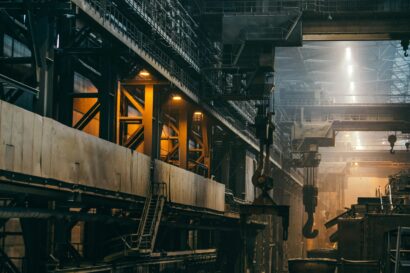AG INSIGHT | 11/12/2018
What is a “just transition” and why is it critical to getting to a low-carbon future?

Dr Ajay Gambhir, Senior Research Fellow at Imperial College London’s Grantham Institute – Climate Change and the Environment considers the term “just transition” and why it is key to securing a sustainable, resilient, low-carbon future.
This year’s Conference of the Parties to the United Nations Framework Convention on Climate Change (COP24 of the UNFCCC) in Katowice, Poland, has many objectives. Above all, it’s about the urgency of implementing the Paris Agreement and ratcheting up country ambitions so that we have a chance of limiting global warming to well below 2°C. But you’ll notice another recurring theme: that of ensuring a “just” transition towards a low-carbon economy.
At a time when global carbon dioxide emissions are rising again and the ‘gap’ between what we’re on course to emit and what’s needed for “well below 2°C” is disturbingly large, you may wonder why this has already become such a prominent issue. Yet thinking about justice and fairness is critical for the future of those affected by the transition, such as workers and communities in industrial sectors and regions undergoing changes as a result of the shift to a low-carbon economy.
Change is afoot…
The level of change required to avoid dangerous levels of climate change-causing greenhouse gases will involve sizeable green industries emerging around renewables, energy efficiency, alternative transport and heating technologies and practices, and a more circular economy with less use of, and waste of, resources. Inevitably though, it will involve a decline of some incumbent fossil fuel industries. We’ve already seen impacts in the coal mining sector, driven by a shift to gas and renewables in power generation and an increase in energy efficiency. And many industries involved in the extraction and refining of oil are at just as high a risk if the electric vehicle revolution takes hold, as it is looking increasingly likely to.
It would be a mistake, and a missed opportunity, if we watched these changes accelerate without considering the negative impacts and alternative opportunities for workers and communities reliant on these fossil fuel industries. We know that mine closures, for example, can lead to problems for local communities over many years, if not decades. Yet there are also positive examples of governments, businesses, communities and workers coming together to tackle the problem of industrial decline head-on. Exemplary cases have seen people successfully re-training and re-employed, regions re-invigorated and a healthy long-term economic outlook.
Achieving opportunity for all
Opportunity for all is the essence of a just transition. The term originated in the late 1970’s in the United States, when chemical industry workers were facing unemployment resulting from stricter environmental regulations, and as a result called for investment in programmes to support their transition into other industries. “Just transition” is now an officially recognised term and key objective of the United Nations International Labour Organisation (ILO). In fact, the ILO has already issued guidance and advice on how to manage and support just transitions, which will form the basis of an international labour standard in the next few years. The principles underpinning this guidance include the need for dialogue amongst all stakeholders involved, stable and coherent policies around rights at work, education and training and the creation of decent jobs.
Achieving justice and opportunity for all in the emerging green economy must be an integral part of the low-carbon transition. After all, in many ways, one of the main objectives of the shift to a low-carbon future is to improve human wellbeing and strive towards a fairer and more sustainable society. If collectively we fail to achieve a just transition, then not only will we have failed in this objective, but there could also be a backlash from disaffected workers and communities – the likes of which we’ve recently become only too familiar with. Such an outcome could slow or even reverse the transition.
That’s why it’s paramount that government and industry groups approach the replacement of parts of the fossil fuel industries by new green industries with their eyes open, and draw on the considerable depth of experience gained from previously successful industrial transitions. In doing so, the transformation to a low-carbon economy stands a better chance of achieving a positive and sustainable outcome for everyone affected.
To find out more about just transitions, read the Grantham Institute briefing paper, Towards a just and equitable low-carbon transition, by Dr Ajay Gambhir, Fergus Green and Professor Peter J G Pearson.
The Grantham Institute is Imperial College London’s hub for climate and the environment. For the latest news, views and events from the institute, sign up to their weekly update newsletter.



